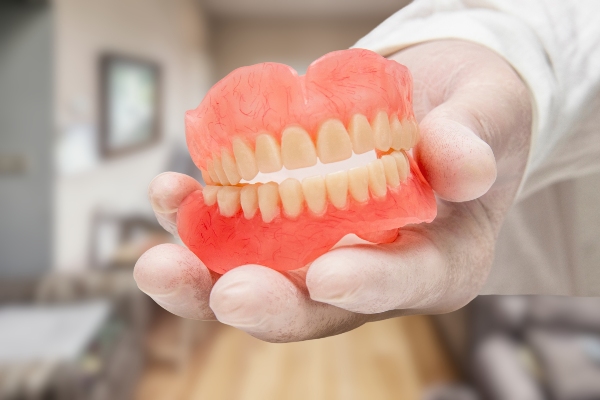Commonly Asked General Dentistry Questions About Toothaches

General dentistry commonly handles toothaches among other dental concerns. While this is a routine issue that is easily treatable, it is common for patients to have several questions about it and what they should do if they experience it. Here we will answer some commonly asked general dentistry questions and advice on the best ways to relieve your pain.
The most common questions we get include:
What does a toothache feel like?
Toothaches can range from mild to severe and can be quite different for each person. Some people indicate that the pain comes on gradually and is hardly noticeable before developing into a sensation that is intolerable. The pain usually begins in the affected area and then spreads into the surrounding areas of your mouth, lips, or tongue. The pain may become stronger when you move your jaw, chew difficult foods such as nuts, ice cubes, or crunchy chips, touch the tooth or surrounding area with your tongue, press on it with your finger, drink very hot/cold liquids, brush your teeth too hard.
What is the root cause of toothache?
There are many reasons for toothaches. Sometimes it can be difficult to narrow down the reason for a toothache, but generally, a dentist can help with this. In some instances, a toothache may occur due to an injury. Usually, this is the easier reason to identify simply because people almost always remember when they were injured.
Tooth pain can also be caused by a cavity that has developed in your tooth or an infection of the pulp (nerve) and other tissues inside the root canal system of your teeth. This condition is called "Endodontic-Periradicular Abscess," It needs to be taken care of immediately by a dentist. If the toothache is not treated, it will spread and may cause permanent damage to your teeth.
An endodontic-periradicular abscess (EPA) is an infection that originates in the pulp chamber or root canals of a tooth. It is also known as a periapical abscess or radicular cyst, referring to the same condition. General dentistry refers to the infection by saying it originates in either the root canal system (endodontic) or apical foramen (periradicular).
The cause of your tooth pain certainly matters as it will likely determine the best path forward when it comes to a treatment plan.
How long will toothache last?
This depends on the cause of your toothache. It may take anywhere from a few days to several weeks for your pain to go away. If not treated, it can lead to more severe problems in the future, such as an abscessed root canal or severely damaged teeth. In the meantime, your dentist can provide some helpful tips for how to manage the pain.
How do I treat a toothache?
There are many different treatments for treating a toothache ranging from remedies at home to dental procedures that will need follow-up care at our office. First, it is crucial to determine the cause of the toothache. Is the pain coming from your gums? Did you recently chip or crack a tooth? Are there any signs of infection such as swelling, redness, drainage, bleeding, etc.? If so, then let us know right away! Our dental team can help alleviate some discomfort and determine the best course of action to take.
What can I do at home to help reduce tooth pain?
There are many things that we recommend doing to soothe the pain and give your mouth a break! Some of these include: rinsing out your mouth with warm salt water (teaspoon of natural or sea salt dissolved in a cup of warm water, spit out and repeat as needed), rinsing your mouth with an over the counter fluoride mouthwash like ACT fluoride rinse (this will help to decrease pain associated with a toothache or other issue in the mouth which cause sensitivity), apply cold compress/ice pack on outside of cheek near affected area for 20 minutes at a time.
Discuss options with your dentist
Tooth pain can certainly get in the way of your regular life and could be a warning sign of a bigger dental problem. Please don't ignore tooth pain because it likely needs to be addressed right away. If you're not sure how to relieve your tooth pain, turn to the person who can help. Your dentist is an excellent resource for understanding tooth pain and your options for relief. Contact your dentist to learn more.
Request an appointment here: https://brimhalldentalgroup.com or call Brimhall Dental Group at (661) 249-1122 for an appointment in our Bakersfield office.
Check out what others are saying about our dental services on Yelp: General Dentist in Bakersfield, CA.
Recent Posts
Are you new to the Bakersfield area? Choosing a new general dentist is an important decision that can impact your long-term oral health. This dental professional provides preventive care, diagnoses dental issues, and performs essential treatments, making your dental provider an essential part of a comprehensive healthcare team.A general dentist serves as the primary care…
The routine oral care that you receive on an ongoing basis involves general dentistry. You should see a general dentist first if you have any symptoms of dental disorders, as early intervention is often the key to preventing costly damage and extreme discomfort. Additionally, you should also visit periodically even when you do not have…
Seeing a general dentist for regular checkups should be part of your dental care routine. This dental professional can help maintain and even improve your teeth and gum health. Asking the right questions can help you know more about proper oral care. Below are some of the questions you can ask your general dentist during…
A general dentist will tell you all of the benefits of flossing on a regular basis. Flossing should be a very important part of your daily oral hygiene routine. Brushing your teeth is the first round of defense in fighting tooth decay but do not underestimate the value of flossing. When you get into the habit…


